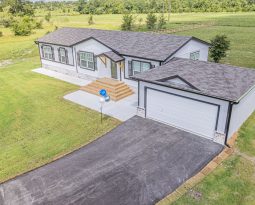CANADIAN MOBILE PARK RESIDENTS STRUGGLE AMID ENERGY BOOM, DOVER, DELAWARE LOOKS TO AMEND MANUFACTURED HOME ORDINANCE, ARIZONA RETAILER SEEKS CITY TAX BREAK
Promises of pipelines and LNG plants in northern B.C. have some landowners seeing gold. But housing advocates warn that the prospect of a boom is causing housing problems for seniors and other vulnerable people, according to a recent online report by the Montreal Gazette.
Mobile home parks have long been the most affordable way for British Columbians to own a home in the coastal communities of Kitimat and Port Edward, however, that option is disappearing.
According to real estate agent Graham Pitzel. “Kitimat has gone through a lot of changes, but we do have some large projects proposed for the area right now,” he said, citing LNG, refinery and pipeline proposals.“If those do go through the times will go back to high rent, high prices — everything, we anticipate, will probably go up again.”
estate agent Graham Pitzel. “Kitimat has gone through a lot of changes, but we do have some large projects proposed for the area right now,” he said, citing LNG, refinery and pipeline proposals.“If those do go through the times will go back to high rent, high prices — everything, we anticipate, will probably go up again.”
There’s a similar situation to the northwest in Port Edward, just a stone’s throw away from the proposed site of the LNG terminal on Lelu Island. The owner of that town’s Stonecliff Park trailer court shut down the park last year to turn it into a green space, arguing that she was losing money on her investment.
It’s cases like these that prompted NDP MLA Harry Bains to draft a bill, calling for changes to provincial legislation that would require landlords to provide evicted tenants with up to $30,000 to cover moving costs if a park is being redeveloped. Or buy the homes at market value if they’re impossible to move.
He said he was moved by the stories of trailer park residents in his riding of Surrey-Newton where rising property values have led to similar situations in recent years.
“These are our seniors. They built this province and their country. Many of them fought for us,” he said.
The bill was introduced in the last sitting of the legislature, but didn’t make it to the floor for discussion.
Dover, De. City Council to Consider Amending Manufactured Home Community Ordinance

The head of Dover’s planning office said Friday a city ordinance meant to update rules for building manufactured housing in the city may need to be amended, reports the Dover Post.
Unanimously adopted Aug. 8 by city council, Ordinance 2016-16 also set out standards for maintaining and managing neighborhoods where residents own their homes, but lease the land beneath from a third party.
The owner of one of those properties, Harry Miller, has complained to city council that the ordinance puts an unnecessary burden on operations in the manufactured home Community of Wild Meadows.

“The point of the law was that we can make them accountable,” Neil said. “The law is very, very clear.”
However, Dover city Councilman Fred Neil, who lives in Wild Meadows, feels the new rules help improve manufactured home communities. State law requires landowners to maintain the property to ensure the health and safety of the residents, but provides no way of enforcing the requirement, he said.
Ordinance 2016-16, which will take effect until July 2017, sets up the means to ensure the health and safety of the residents, he said. Neil was one of the cosponsors of the ordinance. Saturday, Neil said he and fellow cosponsor councilman Scot W. Cole would not object to some amendments, but the ordinance’s provisions about ensuring landowners comply with federal and local laws remaining. However, an amendment to the ordinance would require approval by the full city council.
Chino Valley Council Ponders Tax Break for Clayton Homes
The management of Clayton Homes in Chino Valley, Arizona, are asking the Town Council to consider granting them some sales tax relief, saying the highest rate in the region is hurting his business, according to an online report by Chino Valley Review.
“My own sister stores are my biggest competitors, said Dave Rowe, general manager of Chino Valley’s Clayton Homes. The company which is owned by Berkshire Hathaway, also has locations in Mesa and Glendale.
“Everyone”s shopping the internet these days. My own stores are using the tax rate against me. The Mesa and Glendale locations are actually selling more homes up here because it’s cheaper than we can up here,” Rowe said.
Rowe said if they continue to lose business to their sister stores in the Valley of the Sun, then it will be hard for him to justify keeping his store open. Rowe was speaking to the Council’s Oct 18 work study session, so there were no votes.
Chino Valley receives almost all of it’s funding from a 4 percent sales tax which is the highest in the greater Phoenix region, Mesa has a 1.75 percent, Glendale has a 2.90 percent sales tax rate. Rowe asked the Council to consider lowering it to 2 or 3 percent just for manufactured homes.
“We’re not bringing this up, using this as a threatening tactic, but my corporation is sitting there going, ‘Our Glendale and our Mesa locations are selling into Chino Valley and surrounding areas, then why do we need a location there?”
A 2 percent decrease would mean an estimated $55,000 less in revenues for the town, about one-half of the amount received in 2015 from Clayton Homes sale of manufactured home sales.
If the Council wishes to proceed, they would have to set a public hearing for Dec.13,and then advertise it. The earliest a rate decrease could take effect is March 1, 2017.






